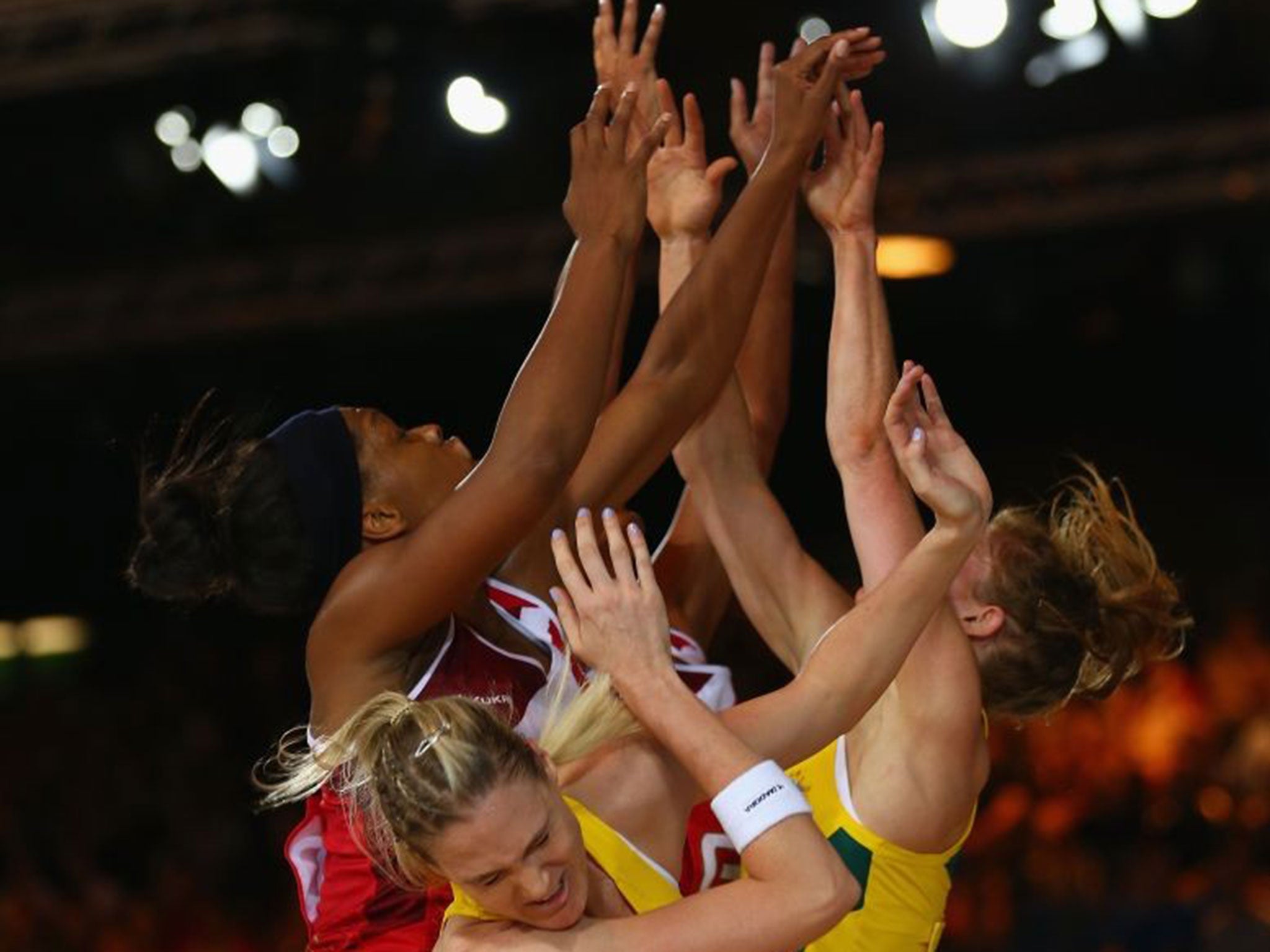Commonwealth Games 2014: England's netballers take Australia to wire but the pain is still hard to bear
Aussies score winning goal with 15 seconds left

Your support helps us to tell the story
From reproductive rights to climate change to Big Tech, The Independent is on the ground when the story is developing. Whether it's investigating the financials of Elon Musk's pro-Trump PAC or producing our latest documentary, 'The A Word', which shines a light on the American women fighting for reproductive rights, we know how important it is to parse out the facts from the messaging.
At such a critical moment in US history, we need reporters on the ground. Your donation allows us to keep sending journalists to speak to both sides of the story.
The Independent is trusted by Americans across the entire political spectrum. And unlike many other quality news outlets, we choose not to lock Americans out of our reporting and analysis with paywalls. We believe quality journalism should be available to everyone, paid for by those who can afford it.
Your support makes all the difference.When it comes to getting beaten by the old enemy – as opposed to the auld enemy hosting the Games – England's netballers have a record more horrible than their country's cricketers, having managed a paltry five victories against Australia in more than half a century.
Yesterday added one more defeat to the long list and a painful one too, a green-and-gold smash and grab with Caitlin Bassett, a 6ft 4in journalism student from Perth, popping in the winning goal with 15 seconds left. It was the first time England had been behind.
There was no time for a response and as the Australians celebrated a 49-48 win, the England players closed around Jo Harten, their main attacking weapon who had been all grace, poise and athleticism over the previous hour. But moments before Australia's winner she missed a gilt-edged chance to give England the lead and perhaps the match. She left the court in tears.
"It's devastating, really disappointing, because we led pretty much for the whole game, but we need to remember we can still win," said Ama Agbeze. "It's a setback, but we can still make it to the medal that we want, which is gold.
"Jo will get back up. She's disappointed but lots of mistakes were made during the game and it wasn't just her. We got to that point because of her input and her playing ability. She needs time to get over it but we've got another game tomorrow, so..."
They must beat South Africa this evening, and Trinidad & Tobago and Barbados in the week, to ensure a place in the last four. The consequence for England is that it will be a lot more difficult to win that first major title, the driving ambition for Anna Mayes's tenure as coach. Unless Australia slip up against one of the lesser nations then England are likely to face New Zealand, the defending champions, in the last four. Antipodeans dominate the sport, having won every world title since the first event in Eastbourne in 1963 and splitting the four Commonwealth golds two apiece. England are a coming force. Three of that quintet of wins against Australia came last year and they should have made it six yesterday. They at least know where their next win is coming from, certainly more so it would seem than England's cricketers.
If one statistic demonstrates the rise of netball in England it is that more people play it than cricket, according to Sport England. Netball's numbers have risen by 40,000 in the last six years but a recent wobble saw their central funding cut. A successful tournament here would be a timely, much needed second wind for the sport and nothing would do that better than an England gold medal.
Yesterday's game on its own, live on BBC on a Saturday morning, will have done netball a power of good. Like many second or third-tier sports (or indeed, the more cynical might suggest, the Commonwealth Games itself), it lacks international depth – which is why England's rise is welcomed in New Zealand and Australia. This tournament will demonstrate the gap between the have-nets and the have-nots and there will be some ponderously one-sided matches. Not this one, though; this was the sport at its lithe, loose-limbed, breathless best.
There is a broader picture to be painted too. At the end of a week in which a committee of MPs released a report detailing concerns over how women's sport is treated, taught and denigrated, here was a sport and a team that could be held up as a standard bearer for women's sport in modern Britain.
Not that any of that mattered to England's beaten players as they trudged off court, even if was to the accompaniment of Aussie plaudits. They know England have improved and are now good enough to deny them gold.
"Yeah, having such a tough match like that, they certainly are," said Laura Geitz, the Australian captain. "They've definitely improved in the last few years."
England were aggrieved at what they saw as an overly physical approach by Australia in the second half. Three times Serena Guthrie was sent tumbling, twice she needed treatment. It was a complement to England. They rattled Australia but if they are to match Mayes' ambition of becoming world champions next year then they need to do better; rattle them and roll them over.
"We beat Australia three times in January [2013] and that gave us confidence," said Agbeze. "For years we've been the also-rans. But for the first time ever, Australia and New Zealand are looking at us as serious contenders. New Zealand were in the stands watching [before crushing Scotland 71-14]. From that performance everyone realises we are serious contenders and we mean business."
Join our commenting forum
Join thought-provoking conversations, follow other Independent readers and see their replies
Comments